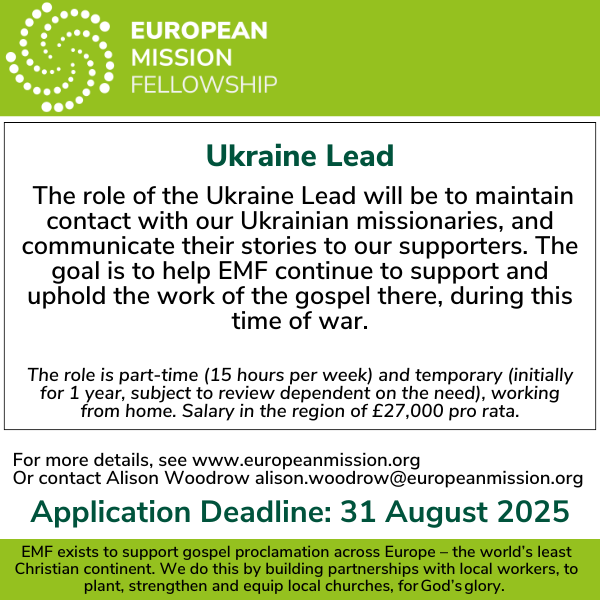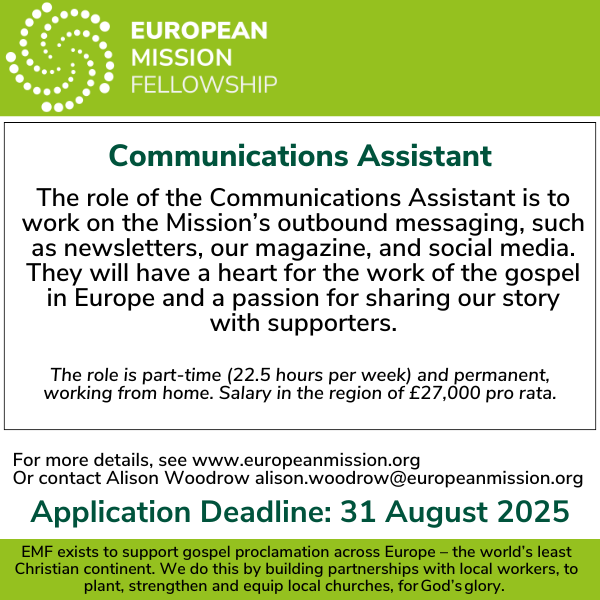Christian conference on dementia
November 2008
By the time you have read this article, three more people will have been diagnosed with dementia in the UK – one every 3.2 minutes. The incidence of dementia is rising so rapidly that experts are referring to a tsunami in the making.
It threatens to overwhelm Social Services and the NHS whose services are already inadequate, and will affect the lives of millions. It is not a new disease, but one that has been thrown into sharp relief by the rise in the number of sufferers in an increasingly ageing population.
Among them are a fair number of Christians – research shows that ‘people with a faith and who regularly attend a place of worship’ tend to live longer than others. Because of the severe personality changes that dementia can bring, it raises questions for Christians unlike any other illness. Like those caught in a geological tsunami, people feel ill-equipped to help either themselves or others.
Pilgrim Homes has been serving older Christians for over 200 years, and it was to answer some of these questions and share its experience that the charity organised a conference on dementia in London. It attracted people from a broad range of backgrounds.
What is dementia?
Dementia is an umbrella term used to describe a gradual deterioration of brain function leading eventually to death. There are around 100 causes of dementia, with Alzheimer’s disease accounting for 58% and vascular disease the next most common. Around 700,000 people have been diagnosed with dementia in the UK and there are an estimated 200,000 undiagnosed for various reasons.
Although the government lays the blame for much of this at the feet of GPs’ lack of training in spotting dementia, a recent survey (Daily Mail, November 08) found that 60% of GPs surveyed were unwilling to give a firm diagnosis because of the lack of care and support available.
Two thirds of people with dementia are being cared for in their own homes, often by an elderly spouse, with no help of any kind. A recent YouGov survey said the impact of dementia is felt by 25 million people in the UK.
The statistics may be sobering but they do not portray the depth of human suffering behind them. A church leader at the dementia conference asked, ‘As Christians, what are we planning to do so that we are prepared, and able to care?’ Rev. Roger Hitchings, pastor of an evangelical church in the Midlands and a former director of Age Concern in Birmingham, said there was a great need for information and pastoral care programmes to support sufferers and their carers.
Sense of guilt
The conference opened with Pastor Geoff Thomas (Aberystwyth) speaking on the spiritual aspects of caring for someone with dementia. He had first-hand experience, having cared for his mother, a deeply committed Christian, for many years. Her family had started its journey of faith back in the 1904 Welsh Revival.
Pastor Thomas remembered her as ‘an enormously gentle, giving, humble, self-effacing and affectionate lady’, whose hymn-singing as she worked around the house was the background to his life.
In her seventies she developed dementia, grew morose and stopped singing, and would repeat the same question over and over again. He recalled how angry and frustrated he would get at times and how he would leave the room, fuming with anger and frustration, annoyed with himself and ashamed of his lack of patience.
Guilt would overwhelm him, and time and time again he had to remind himself that ‘the blood of Jesus Christ cleanses us from all unrighteousness’. He was grateful for the help that came from his family and the church, though many people would be afraid. ‘They don’t feel that they can just sit with someone and talk with someone’, he said.
He emphasised the importance of the commitment that families and churches have to one another, remembering how Christ washed the feet of his disciples. Churches have a ministry of mercy. He asked, ‘Do they meet together and ask, “Are there needs in the church now? Are we doing what we can?” Do they know – do you know – where the pressures are; where the heartache is; where some are beginning to backslide; where there’s coldness of heart?’
He also appealed to Caesar [the State], saying, ‘Let Caesar help, let him match [voluntary charitable work and giving] with gifts and with support. Let him honour; let him recognise those who spend so much of their lives caring for those with dementia’.
Life after diagnosis
Dr Daphne Wallace and specialist dementia nurse Serita Washington spoke on the practical aspects of dementia. Dr Wallace is a retired old-age psychiatrist who was diagnosed as having vascular dementia herself a few years ago.
A recent survey showed that 70% of relatives said they would not want the patient to be told that they had dementia, but an equal number of patients themselves said they would prefer to know the diagnosis.
Dr Wallace said that she had needed a diagnosis to know that the loss of capacity she was experiencing was not just her imagination. Her presentation covered the implications for the person as well as the family and carers, the supportive practical and psychological care, and the importance of relationships.
‘It takes time to adjust, and then to learn to be positive about living with dementia’, she said, adding that each person needs a sense of purpose. On the other hand, being, rather than doing, may be a skill to be learnt, and ‘being in the present moment’ is important.
‘There is life after diagnosis and it is important that this is known and emphasised’. Above all, no one should feel alone or bereft. Human beings need relationships and these are not exclusively built on language or activities but on ‘simply being together, alongside others on their journey and appreciating the core of the person involved [that] is what really matters’.
Serita Washington emphasised the importance of person-centred care and of seeing the person, not the dementia. It is important to know as much about the person before the illness as possible.
Care-home or care at home?
Questions to the panel covered practical, spiritual, medical and emotional issues. Some were addressed by members of the panel. In addition, some questions will be posted on the Message Board on Pilgrim Homes’ web site in the New Year to encourage responses from people who have experienced similar situations.
Many people wanted to know how they could tell when it was time to give up caring for the sufferer at home and employ the help of professionals or find a care home qualified to look after them.
Some people felt guilty at not being able to care themselves, and felt that they were failures, while others understood the need for trained teams of carers in a care home for the sufferer’s own well-being and safety.
Most major concerns centred on the more severe stages of dementia, which are the most challenging and the most difficult to understand. ‘Is it right to prescribe antibiotics for someone in the final throes of dementia?’ asked one questioner. Dr Wallace remembered prescribing antibiotics for a sufferer with a sore throat, confident that at least that symptom could be treated and the person would feel less discomfort.
No easy answers
Not all questions have easy answers, implied the final speaker, Pastor Alun McNabb – referring to a question that John Bunyan was once asked about heaven (Bunyan told the enquirer to go and see for himself.) We are pilgrims, journeying to heaven, but our minds and thoughts can be so earthbound that we lose sight of the glories to come.
There is a saying that you can be so heavenly minded that you are no earthly use. ‘I never met anybody in that category’, observed Pastor McNabb. ‘Those who are most heavenly minded are so very often of great earthly use’. He spoke of the importance of knowing that we had made the right choice and were going to heaven, and the joys of being with the Lord.
Delegates were invited to converse with individual speakers before the end of the conference, and many said how much they had been encouraged and had learnt from the day.
‘So much information, and so much compassion!’ said one. Others asked to be told well in advance of similar conferences, so they could arrange for themselves and others to attend.
Louise Morse,
Pilgrim Homes, London






